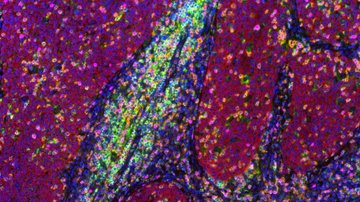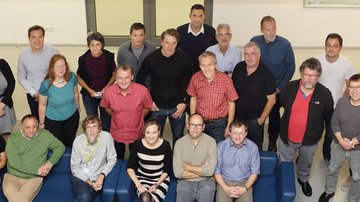
Biometals and Drug Discovery Lab
The MICOBION project has begun
The prestigious MiCoBion project was launched in September, supported by the "Twinning - Spreading Excellence and Widening Participation, Horizon 2020" program coordinated by the Charles University Faculty of Science (prof. Jan Tachezy, Department of Parasitology - BIOCEV). The project’s main goal is to foster scientific excellence and the innovative capacities of CU FS laboratories through collaboration with leading partners – the Catholic University of Leuven (CUL), the European Molecular Biology Laboratory (EMBL) and the Jacques Monod Institute (Paris Diderot University) – in the field of complex molecular profiling of biological systems (microbiomes) that will lead to innovative research into microbial communities and their impact on health and the environment.
Joint research will include comprehensive analysis of communities of viruses, single-celled eukaryotes and bacteria. The work is expected to identify new pathogens (viruses), diagnostic biomarkers and potential goals for the development of new medications and their applications.
The strength of the CU FS teams is their excellent knowledge of microbial systems, important for the health of humans and animals, and their impact on the environment. The partner organizations bring to the project experience in new analytical technologies, bioinformatics and innovative research. Planned activities include the exchange of researchers, joint support for the development of young researchers, the organization of seminars and lecturers by renowned specialists, as well as participation in EMBL, CUL and CU courses. The project will also strengthen cooperation and communication between the scientific community, industry and the general public.


MICOBION Kickoff Meeting (Prague)
On 24 September 2018, key representatives of the MICOBION project (H2020 – Twinning) met at the BIOCEV Centre. The project is focused on improving knowledge in the field of research into microbial communities (microbiomes). Guests included partner institution representatives from EMBL, the Jacques Monod Institute and the Catholic University in Leuven. The aims of the meeting were to enable participants to become acquainted, to present research goals, and to determine educational and research activities for the next 12 months.
Individual work groups (Work Packages - WP) were presented during the meeting.
- WP1 – education of PhD students through specialized courses (Functional genomics, Metagenomics, etc.)
- WP2 – transfer of knowledge during stays abroad by leading researchers and young scientists at partner institutions
- WP3 – professional growth (specialized lectures by distinguished scientists, courses focusing on writing scientific publications or preparing grants)
- WP4 - workshops and conferences (e.g. Single DNA Molecule Sequencing or Proteomics and Protein Modifications)
- WP5 - communication and technology transfer (e.g. project promotion and cooperation with the technology transfer departments of partner institutions)
A workshop followed the presentation at which representatives of individual WPs prepared a detailed plan of activities and scheduled regular contact through teleconferencing. The entire event concluded with some words from the external advisory board, which praised the strategy and organization of the project.
Members of the MICOBION external advisory board
- Prof. Mark C. Field, Professor of Cell Biology and Parasitology at School of Life Sciences, University of Dundee
- Prof. Staffan Svärd, Head of Microbiology, Department of Cell and Molecular Biology, Uppsala University
- Prof. Luigi Pier Fiori, Director of Department of Biomedical Sciences, School of Medicine, University of Sassari, Italy



